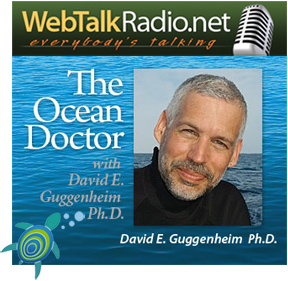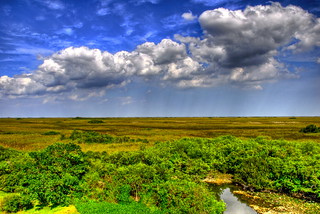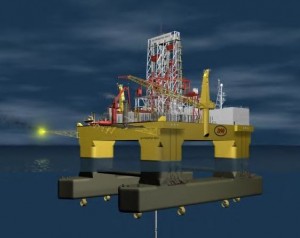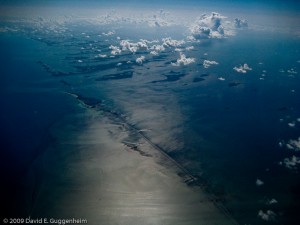
December 13, 2010: Mangroves are critically important to our coastlines, to fish, manatees and other ocean wildlife we love. But in South Florida many acres of mangroves were destroyed to make way for waterfront real estate, and around the world, mangroves face a myriad of threats. Enter the Reclamation Project, a unique art, education and restoration project hosted at Miami Science Museum. Mangrove seedlings in cups are displayed as art in galleries, retail stores and schools throughout the region, and once large enough, they are replanted along the shoreline. Along the way comes lots of new awareness about the incredible wetlands residents may be only vaguely aware of, and deep appreciation for the beauty of nature. Our guests: Reclamation Project Founder and artist, Xavier Cortada and Executive Director, Fernando Bretos. Also: Attacked by the Giant Squid’s cousins and a silky shark with an appetite for video cameras.
The Ocean Doctor airs weekly on WebTalkRadio.net. Want to listen on your iPod, iPhone or mp3 player? Download the mp3 file or subscribe on iTunes and don’t miss a single episode. See the complete list of episodes.
Follow The Ocean Doctor on Twitter — Become a Fan on Facebook!
Submit a question and I’ll try to answer it on the air. Even better, record your question or comment on our special message line and I might play it on the air. Call: (805) 619-9194. You can also leave questions and comments for this episode below.
Like the show? Learn how to become a sponsor. Read more
Podcast: Play in new window | Download




